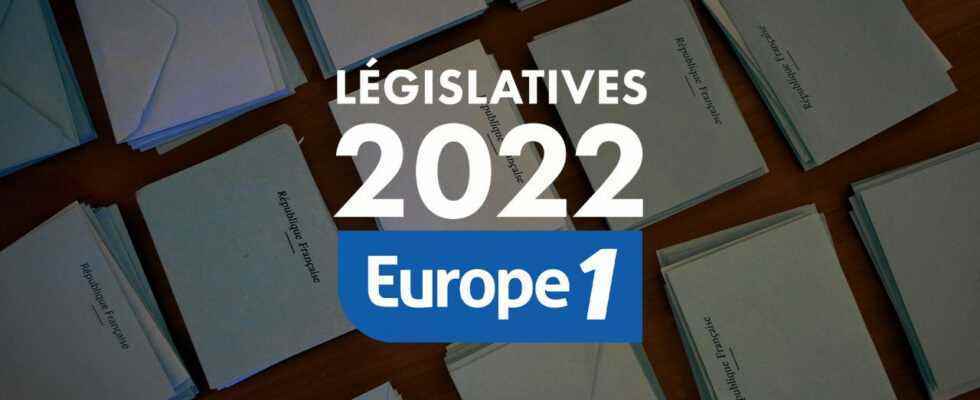Participation in the first round of the legislative elections reached 18.43% on Sunday at noon according to the Ministry of the Interior, a figure down 0.8 points compared to 2017 when it stood at 19.24%. It is also down sharply from the first round of the 2022 presidential election, where it reached 25.48% at noon. On the other hand, the participation is much higher than that of the departmental and regional elections of 2021 at noon (12.22%). At 5 p.m., this participation rate stood at 39.42%, down 1.3 points compared to 2017 (40.75%) and nearly 10 points compared to 2012 (48.31%). ). It is also much lower than that of the first round of the presidential election of 2022 (65%).
Towards record abstention?
It is therefore abstention that could well consolidate its position as the leading party in France. It could reach a new record on Sunday for a first round of legislative elections. According to an OpinionWay poll for Cnews and Europe 1, it would stand at 52.5%, or more than one in two voters. After Emmanuel Macron’s first five-year term marked by record abstention in local elections, and in particular the regional Bérézina of 2021 (66.72%), the last presidential election in April had marked a rebound (26.3% of abstention in the first round), which will therefore have been short-lived.
The left-wing Nupes alliance (LFI, PCF, PS and EELV) is neck and neck in voting intentions with Ensemble!, a macronist coalition of LREM / Renaissance, MoDem and Horizons. But in the second round on Sunday June 19, the reserves of votes could be lacking for Nupes to seek victory, unless there is a strong mobilization of abstainers from the first round.
Abstention in the legislative elections has only increased since the 1993 election, rising from 31% that year to 51.3% in 2017. It primarily affects young people and the working classes.
For Macron, the risk of a relative majority
The latest polls published on Friday place Together! in the lead in number of deputies, but not necessarily with the absolute majority -289 seats out of 577- that macronie held in the previous National Assembly elected in 2017. If Emmanuel Macron obtained only a relative majority, he would be forced to compose with the other parliamentary groups to have its legal texts approved.
The situation already occurred in 1988, after the re-election of François Mitterrand. Its Prime Minister Michel Rocard then had to laboriously compose ephemeral majorities for each project. He had also often resorted to article 49-3 of the Constitution, a process allowing the adoption without a vote of a text of law, the use of which has since been restricted.
If, in the least likely scenario, Jean-Luc Mélenchon’s Nupes won an absolute majority, Emmanuel Macron would be deprived of practically all his powers. “It is no longer he who will determine the policy of the nation, but the majority in the National Assembly and the Prime Minister who will come from it”, summarizes Dominique Rousseau, professor of constitutional law at the University Panthéon-Sorbonne.
Mélenchon’s “third round”
It is with this objective in mind that Jean-Luc Mélenchon kept repeating that he wanted to make these legislative elections “a third round” which would allow him to be “elected Prime Minister”. Emmanuel Macron, who made four trips during the campaign, chose to pose, as during the presidential election, as a bulwark against “the extremes”.
Pointing to the lack of credibility, according to him, of the Nupes on the economic level, he calls for a “strong and clear” majority in order to be able to implement his program. Including Prime Minister Elisabeth Borne, fifteen members of the government are in the running for the legislative elections and will have to leave the executive in the event of defeat, in accordance with an unwritten rule but already applied in 2017 by Emmanuel Macron.
After Marine Le Pen garnered more than 40% of the votes in the second round of the presidential election, the National Rally is, according to the polls, outdistanced by Nupes and Together! for legislative purposes. However, he could obtain between 20 and 40 deputies, against 8 elected in 2017, and thus form a parliamentary group for the first time since 1986.
The RN hopes for conquests
The RN, strong in PACA and in Hauts-de-France, hopes to have elected officials in new regions, such as the Grand Est, Occitanie, or even New Aquitaine. In this camp, the former presidential candidate Éric Zemmour also nourishes, in the Var, the hope of being elected deputy. He could be the only one of Reconquest!, his party.
Finally, these legislative elections promise to be at very high risk for the traditional right of the Republicans (LR), pillar for decades of French political life, but far from power since 2012, and whose candidate Valérie Pécresse obtained less than 5% presidential votes.
Nearly 6,300 candidates are vying for the 577 seats, i.e. 20% less than in 2017, due in particular to the agreement on the left. Those who will not be elected on Sunday evening will have to, to access the second round of June 19, either arrive in the first two in their constituency, or obtain the votes of 12.5% of registered voters.
